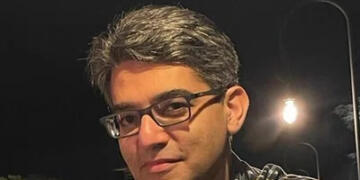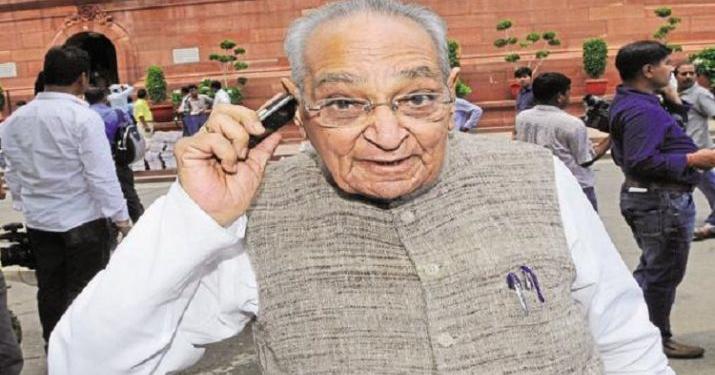Rahul Gandhi’s seemingly unwavering decision to step down from the post of the Congress president has rendered the Congress members distraught. The thought of having a non-Gandhi leader at the helm seems like an atrocity to the Congress clan. But they cannot be blamed, for this attitude is a result of decades of conditioning to this accord. It all started in the year 1969 when Mrs. Gandhi was unwilling to accept the fact that her violation of the party discipline could indeed result in expulsion. Such was her superiority due to the “Gandhi tag” that she decided to split the party altogether, and walked off with the Gandhi loyalists in tow, leading to the Congress as it is today.
A person having the authority to question a Nehru-Gandhi was deplorable to Indira Gandhi. Thus, the new Congress (R) was essentially based on the principle of loyalty to the Gandhi family. A person’s rise amongst the ranks was directly proportional to his relation with the Gandhi family. Indira Gandhi concentrated the government’s power within the Prime Minister’s secretariat, rather than the cabinet, and with the help of her loyalist, P.N. Haskar, promoted the idea of “committed bureaucracy” that required impartial government officials to be “committed” to the ideology of the ruling party of the day. Over the years, her influence and power was such that she could pick the loyalists and install them as the Chief Ministers of states, bypassing the proper legislative procedure of the party.
The leaders observed and learnt. They passed this invaluable expertise of “the art of Nehru-Gandhi loyalty” to their further generation like a family heirloom and since a majority of the Congress leaders in the current times are dynasts, the knowledge has indeed been valuable. Further paying off to this ability is that the core structuring of the Congress doesn’t seem to have progressed beyond 1969 and 50 years down the line, after Rajiv Gandhi and Sonia Gandhi, Rahul Gandhi was keen on abiding by the unspoken rule. There must always be a Gandhi in Congress leadership, whether by proxy or otherwise.
Having seen independence, the Congress is a party of many firsts. However, a strange first that no democratic party would like to add to its accord is “proxy rule”. A practice solely restricted to monarchies, when the true heir is otherwise invalid to rule momentarily or otherwise, proxy rule was essentially as only the blood of the king could rule. Congress has been successful in establishing the archaic practice in the world’s largest democracy.
After the split in 1969, it was largely understood that any individual at the helm of the Congress would be a proxy to the Nehru-Gandhi family’s wishes. K Kamaraj, Congress president from 1964-67 gave the Gandhis a run for their money when he rebelled against Indira Gandhi and ousted her. Thus, it was understood that the post of the Congress president would hereon be reserved only for the Gandhis or their old loyalists, without any political ambitions.
The first president after the split was Jagjivan Ram who held the position from 1970-1971. He was a known loyalist of the Nehru-Gandhis, having held the position of a labour minister in Nehru’s first cabinet. He had also gone on to support Indira Gandhi during the emergency period.
Shankar Dayal Sharma presided the Congress party from 1972-74. The post was a result of a decade of hard work and wherein he proved his loyalty to the Gandhis. He supported Indira Gandhi’s quest for leadership of the Congress party during the 60s and the post was seen as a sweet reward of his recognition. He also served as the President of the country between 1992-1997, during P. V. Narasimha Rao’s tenure.
D.K Barooah, who held the position of the Congress President during the emergency period of 1975-77, was largely seen as a sycophant to Indira Gandhi. Turning a blind eye to Indira Gandhi’s blatant disregard of civil rights and arbitrary arrests, his sole concern was fulfilling his personal ambitions. His 1974 proclamation of, “India is Indira. Indira is India is known to all.
Then there were some, who acted for the greater good of the Nation and the party, which was seen in contrary to the wishes of the Nehru-Gandhi family. Mysteriously enough, their authorities was either curbed or were removed from the post.
Kasu Brahmananda Reddy, who held the term between 1977 and 78, turned out to be Indira Gandhi’s mistake. He was the Chief Minister of Andhra Pradesh from 1964-71 when he was made to resign by Indira Gandhi due to his growing popularity. Thereafter, perceiving him to be weak and spineless, Indira Gandhi made the Congress president which turned out to be disastrous as he, along with a few other Congress leaders rebelled which led to another split in the party.
Narasimha Rao was another such mistake of the Congress. He was made the party president and even the Prime Minister after years of Gandhi presidents. The other contender at this point was Sharad Pawar, whose immense popularity in Maharashtra was seen as a threat and hence Rao was the obvious choice. This turned out to be disastrous as Rao completely reformed the party. One of his major achievements, liberalization the Indian economy was contrary to the socialist principles of the Congress. Quickly enough, Sonia Gandhi’s loyal band of followers forced him to step down as party president. Such was the extent of Congress’ disdain that upon his death, his body wasn’t even allowed inside the AICC building and Sonia Gandhi’s comrades ensured that he was moved to Hyderabad.
In his place, party loyalist Sitaram Kesri was installed in 1996. Kesari miserably failed as the party president and was largely unpopular amongst the people. The right wing had risen after the Babri Masjid demolition in 1992 and the turbulent period saw many governments fall. His decision to withdraw support for Deva Gowda government which led to its fall in 1997 was regarded extremely controversial. After losing the election in 1998 to Atal Bihari Vajpayee, the Congress stripped him off his post and Sonia Gandhi in turn replaced him.
Since then, the Congress has been haunted by 2 contradicting notions, they want someone with intellectual capabilities to be at the helm, lest avoiding someone like Kesari; and on the other hand, they don’t want someone too smart like Narasimha Rao who may think beyond the Gandhi family’s needs.
This made the Gandhi family realise the need to keep the power within the family, as had been during their smooth years of Indira and Rajiv Gandhi’s president years of 1978-1991. Thus, Sonia Gandhi firmly grasped power in 1998, only to leave it in 2017 when Rahul Gandhi came of age.
Thus, even when the party was aware of the fact that Rahul Gandhi isn’t the most competent of leaders, precedence enabled them to firmly disregard the need for an able leader. Such was the blind loyalty that Gandhi family at the helm was more important to the Congress members than competent leadership in the party.
Therefore, in the current situation, where the party is being forced to pick a Congress President; the candidate won’t be someone prominent with able leadership qualities, lest the Gandhi dominance be compromised. He is going to be a loyalist sycophant, extremely old without any political ambitions, whose sole aim would be to please the Nehru-Gandhi interests. Moreover, such characteristics are not only essential but are a precondition to the party president as even the members would be highly unwilling to follow anyone who does not abide by the Gandhi family’s intrinsic needs.





























